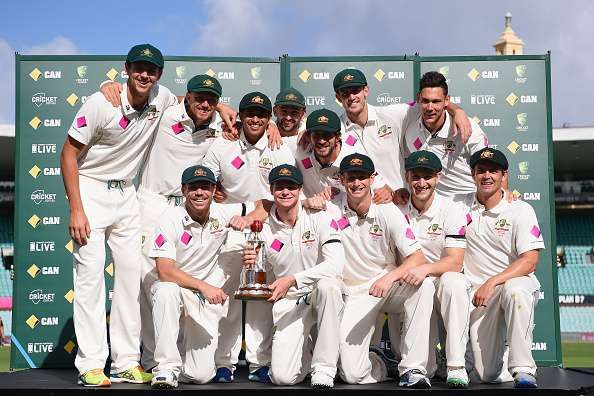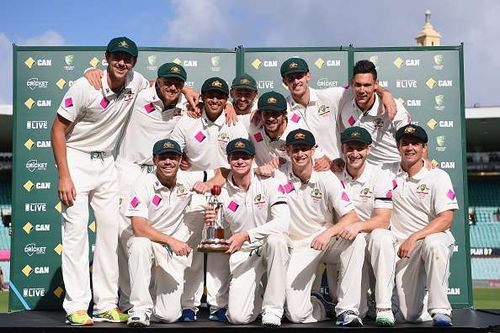
Cricket Australia chief James Sutherland wants Test cricketers to be paid more

The latest to join the ongoing debate on the rise of domestic cricket leagues and its relevancy in context of international cricket is none other than Cricket Australia CEO James Sutherland. The debate is related to the rising financing pull that these leagues around the world such as the Indian Premier League, The Big Bash League etc. have in comparison to International cricket matches.
He believes it’s a matter of concern and the prerogative of cricket boards around the world to ensure that international cricket retains its position as the most attractive form of cricket for players around the globe. Cricket is at an interesting stage of its growth, where players, are confused whether to play Test cricket for their nations or represent their franchises in domestic cricket leagues. The reason for this being that, these leagues, offer a much larger pay. Further, he says, that international cricket’s future can only be secured by making it more financially lucrative than domestic leagues, this is the only way, that it will will remain at the pinnacle of the game.
Efforts have to be made to ensure that the rewards on offer for test cricket are continually increased and work in parallel with any additions of domestic leagues, other T20 tournaments to a calendar year. A study conducted by ESPN Cricinfo during the 2015 – 16 West Indies Tour of Australia revealed that, while West Indies players earn $5000 in match fees for a Test match, the Australians recieve US $11,200 approx per home Test and US $15,700 approx for overseas matches. This is only the tip of the iceberg, however, as there is a greater imbalance when you compare their annual retainer contracts. The West Indies Cricket Board contracted players are split into three categories earning between US $100,000 and $140,000. By contrast, the lowest ranked Australian contracted player gets US $182,500 approx in addition to their match payments. The top-contracted players, meanwhile, earn around US $1.1 million approx.
Outside the big 3 countries – India, England and Australia, cricketers stand to earn more taking part in a domestic league for a couple of weeks in the year than what they stand to gain with an annual contract and match fees. This leads to a lack of motivation to represent one’s own nation, most notably seen in the Caribbean islands.
"I'm genuinely excited about the progress that's been made and the collective will that appears to be in the room among Full Members to improve the context around international cricket and the quality of international cricket," he said. "Some of the key things there are about trying to make way to ensure the best players play international cricket, that they're available and they don't feel under pressure to go and chase money in T20 leagues.
"Part of that is elevating the primacy of all forms of international cricket but particularly Test cricket, and looking to build context. Whether that's through leagues or championships or whatever it might be, it's too early to say, but I can honestly say that in terms of ICC meetings I've attended and we've discussed these sort of matters, these were as a good a meetings as I've ever been to.
"It's for others to state their position, but my view is that international cricket comes first. International cricket must be protected and it should be the form of the game that is the priority for players. I don't support creating exclusive windows for T20 domestic competitions; there may be an exception for IPL which almost seems to have created its own exclusive window, but to that end irrespective I still maintain the position that international cricket must come first, and there shouldn't be any exclusive windows for domestic T20 competitions." he added.